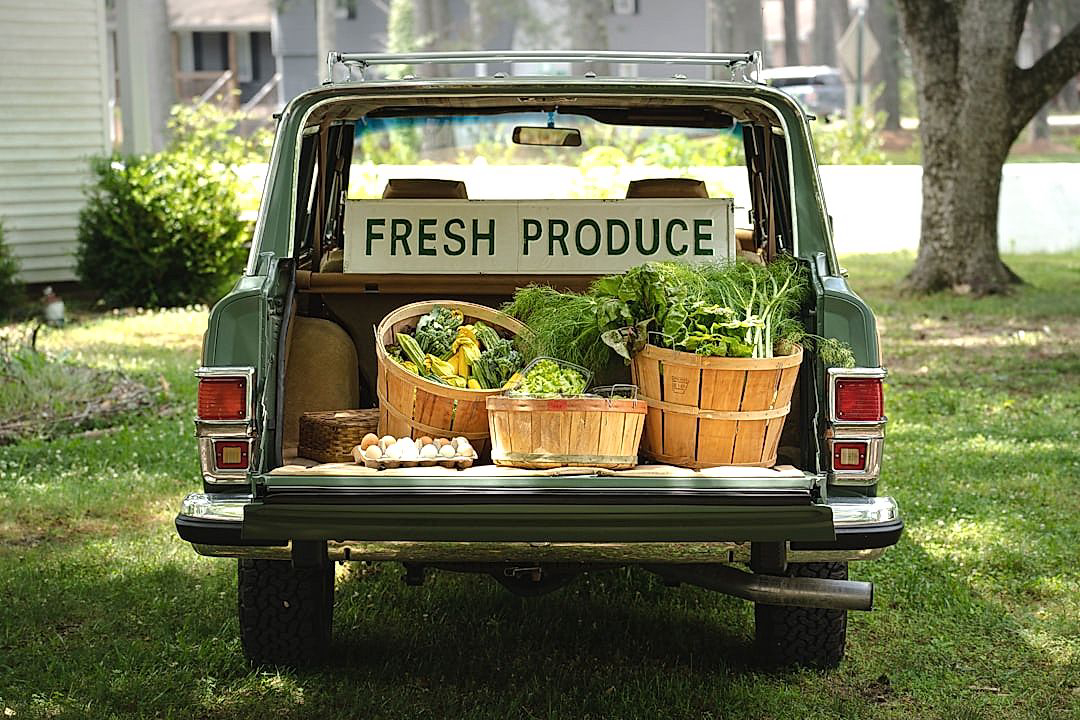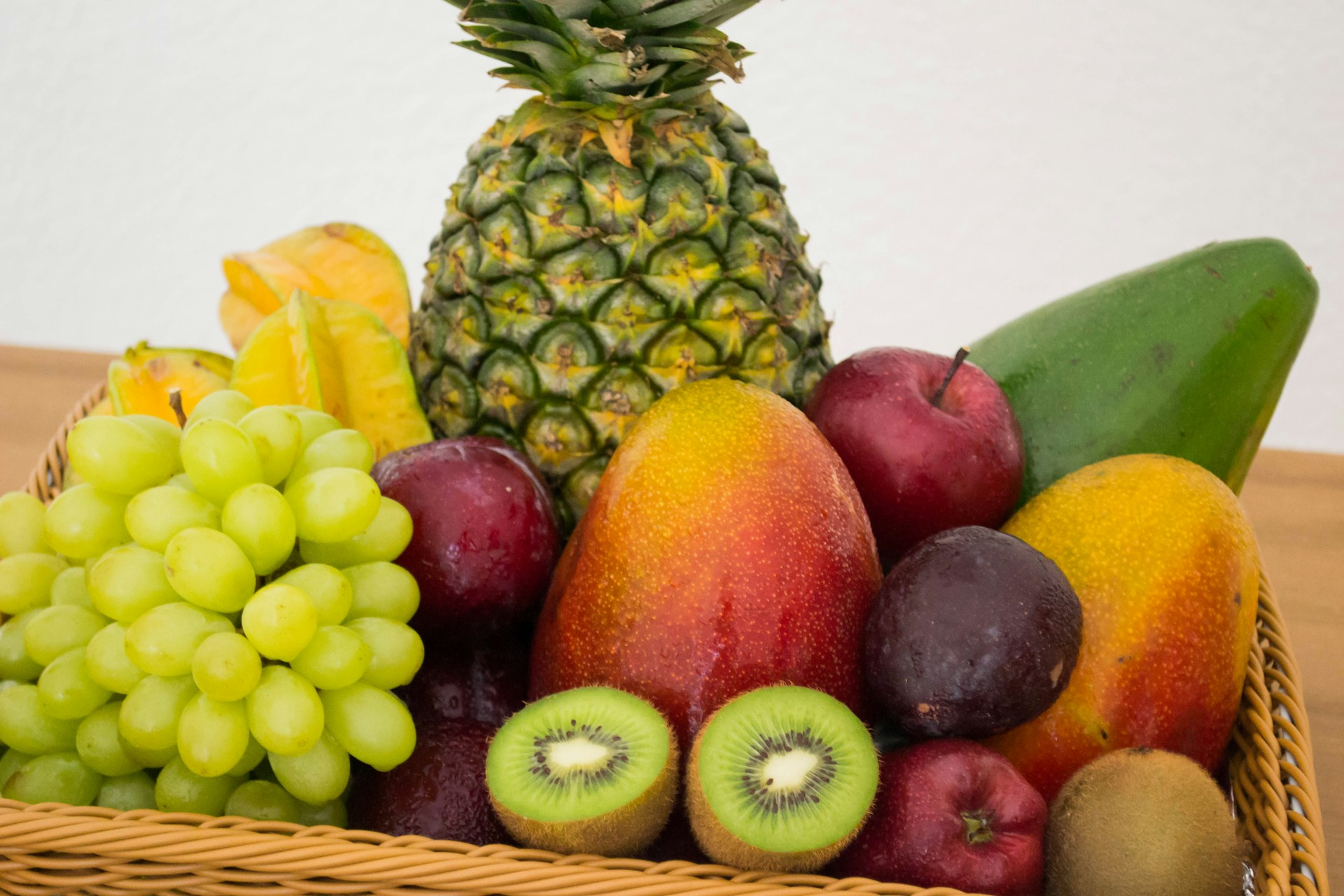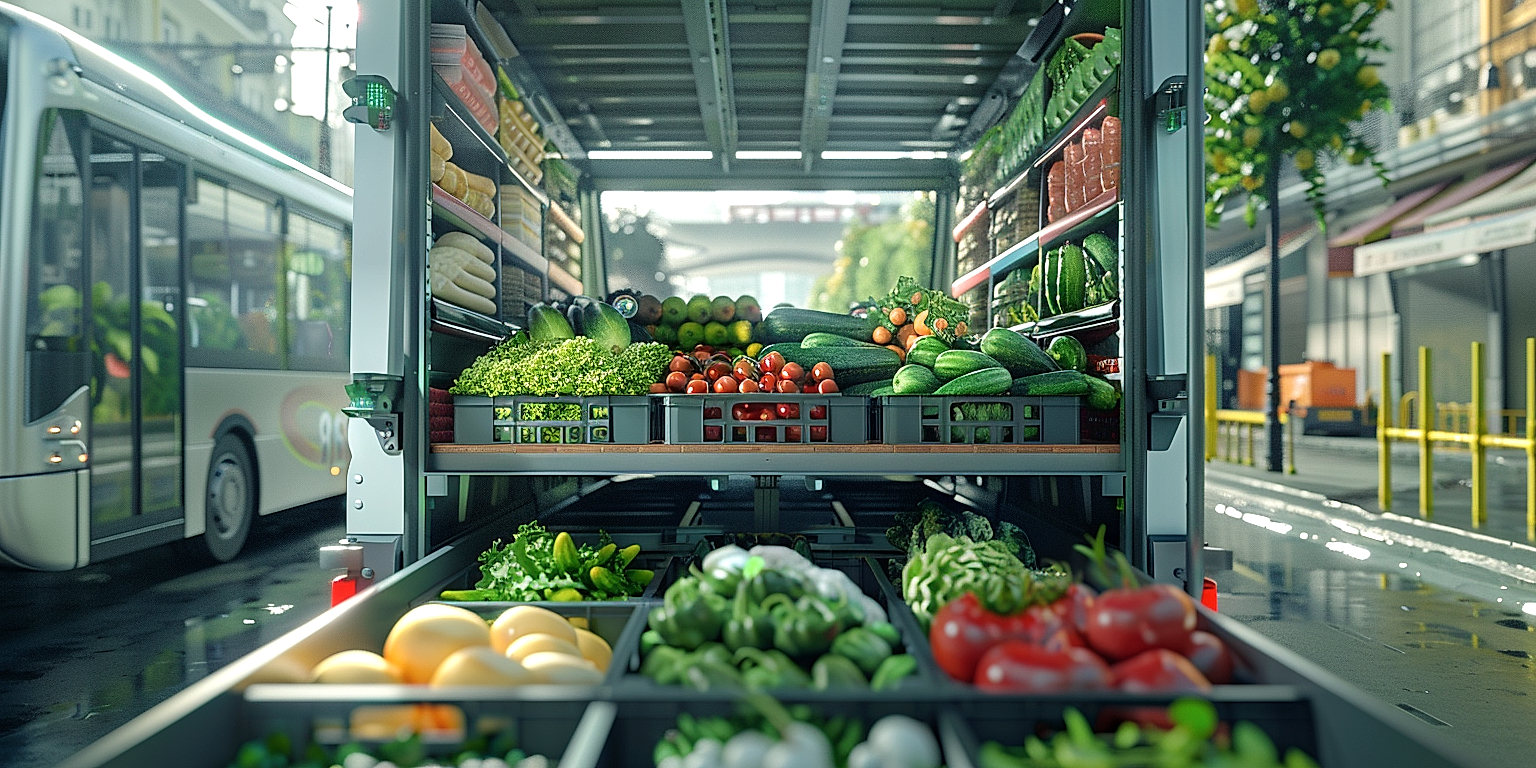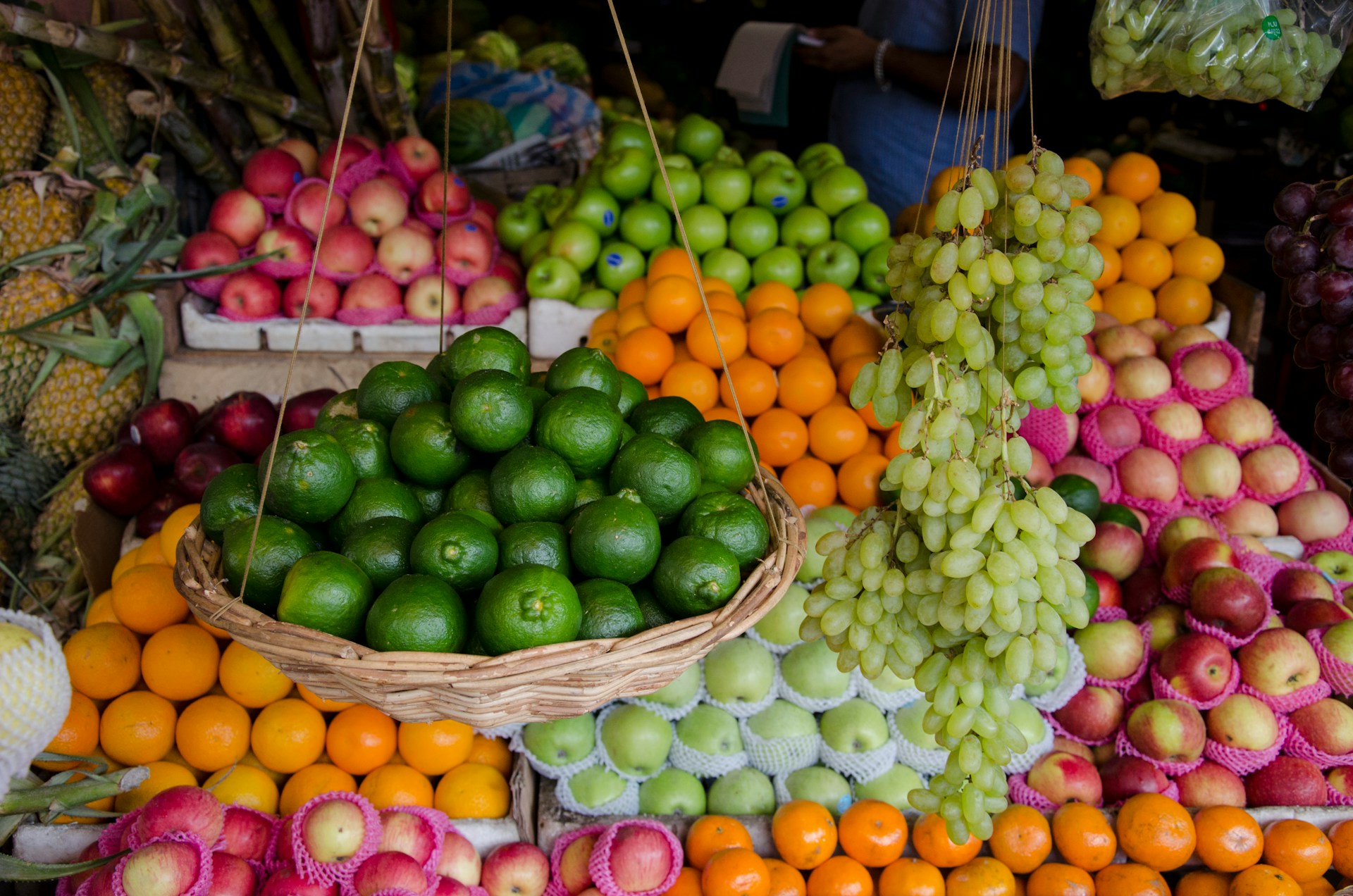Procuring fresh produce and getting it to the end consumer in a timely manner entails a complex supply chain mechanism.
Aimed at preserving quality and freshness, many variables are involved, including packing, temperature controls, and most importantly, transportation.
A pivotal component of this process is selecting the right distribution partner to ensure smooth operations.
Ensuring that produce does not spoil during transport is a costly, complex and often underestimated responsibility.
This entails not just logistical prowess but also a deep understanding of the intricate nuances involved in the process.
In the following sections, we will delve into the multifaceted elements for choosing the most reliable distribution partner for produce transportation.
Partner Selection Criteria In Produce Distribution Transport
1. Reliable Transportation Service
When engaging in produce distribution transport, having a reliable transportation service is paramount.
Poor transportation service can cause significant profit losses and may even damage the reputation of the company in the industry.
The value of reliability in transportation service should not be overlooked.
Therefore, when selecting a partner for this task, reliability should be the number one criteria.
It is necessary to conduct comprehensive research into potential partners’ track records, ensuring they have a history of reliability in the business.
The average time they take to deliver items, the number of times they have not kept to delivery time agreements, and their methods of ensuring timely delivery must all be taken into account.
Another critical factor in transportation reliability is the condition of the transportation vehicles.
Reliable partners often maintain their vehicles in perfect operational status to avoid breakdowns and delays.
To evaluate this, the service history of a potential partner’s vehicles must be understood clearly.
While delays in produce distribution can be costly, vehicle breakdowns on transit could even lead to complete losses, as many produce have relatively high spoilage rates.
Some potential partners may have insurance covers for losses incurred due to vehicle breakdowns and this should also be considered.
In addition, reliable partners have robust fail-safe measures in place to ensure swift recovery from unforeseen events.
It is also important to select partners with good internal communication systems. This ensures that drivers and other parties involved in the transportation chain are kept informed of necessary information that would contribute to the overall reliability of the service.
Finally, consider partners that use advanced technology in their transportation services. Technologies such as GPS, real-time tracking, and software for efficient logistics and supply chain management can enhance reliability.
Having a reliable transportation service is non-negotiable in produce distribution transport; thus, prioritizing it in partner selection is key to ensuring business success.
2. Freshness and Quality Focus
Within the hunt for finding a reliable partner in produce distribution transport, a major point of consideration must be a strong focus on freshness and quality.
The transportation service has to ensure that the produce maintains its freshness from the point of collection to the recipient’s doorstep.
Your distribution transport partner must be fully equipped to cater to this particular need.
Their handling processes must contribute towards retaining freshness and prevent any form of rapid decay or quality degradation.
Simply, they should possess well-maintained, temperature-controlled vehicles that preserve the produce quality during transit.
Moreover, the transit period should be optimized to ensure freshness is preserved.
To guarantee this, the transportation service should be fast enough to give no chance to spoilage agents like bacteria and fungi to affect the produce.
This will ensure that the recipient gets the produce in an edible and fresh state.
Also, the inherent nutrients of the produce should be preserved during the transit.
Essentially, the transport partner should take necessary measures to avoid exposing the produce to extreme weather conditions or harmful chemicals that might compromise its quality.
They also should have clean and hygienic storage facilities which won’t compromise the quality of the produce over storage time.
The transport partner must also be committed towards quality assurance through stringent checks and controls.
This includes thorough processing facilities inspection and routine maintenance to prevent any chances of contamination, both of which can affect the quality of the produce.
Above all, the transport partner must have a strong value commitment towards delivering quality and fresh produce.
Because, after all, the quality and freshness of the produce are indicators of good service in the produce distribution industry.
3. Competitive Pricing.
In the field of produce distribution transport, a significant criterion for partner selection is the ability to offer competitive pricing.
When evaluating potential partners, businesses must consider their service rates and compare them with other providers in the market.
A transport company that offers affordable costs gives customers the opportunity to potentially save on transportation expenses, making their products more competitive.
It should be noted, however, that competitive pricing should not come at the cost of quality and reliability in service.
This balance between cost and quality is critical in ensuring that distributors do not compromise the freshness and integrity of the produce during transportation.
Establishing a competitive pricing strategy requires an understanding of both the market and the unique needs of the customers.
If a produce distribution transport partner can provide value-added services at a competitive price, it signals their commitment to customer satisfaction.
These value-added services might include personalized delivery schedules, advanced tracking systems, or specialized equipment for the safe and efficient transport of produce.
Pricing competitiveness also indicates a company’s ability to efficiently manage its resources and operations.
By optimizing their processes and operations, they can reduce their overhead costs and, in turn, offer more competitive rates.
It is essential to note that while pricing is a critical factor in partner selection, it is equally crucial to consider service scope, quality, and reliability.
The decision to partner with a produce distribution transporter should not solely depend on the lowest offer, as this may indicate potential compromises in service.
Therefore, while pricing is indeed a key deciding factor, a holistic approach to partner selection should always consider several other aspects as well.
An effective partnership involves a thorough evaluation process that includes but is not limited to pricing competitiveness.
The expectations and objectives of both parties must align for the partnership to be successful and mutually beneficial.
Therefore, competitive pricing, complemented by a stellar service, should be one of the key criteria in selecting a reliable and efficient partner in the produce distribution transport sector.
4. Experienced Staff
In the domain of produce distribution transport, having an experienced team is significantly important.
Staff members who are skilled and knowledgeable can effectively handle the distribution tasks and meet the business objectives.
With experienced personnel, a company can ensure that the delivery of fresh produce is done with the utmost care and efficiency.
Experienced staff are the backbone of any successful produce distribution transport company, their skills and knowledge can be the difference between a smooth operation and a chaotic one.
Years of experience train the staff in handling unforeseen situations which helps in maintaining the quality and freshness of the produce.
The expertise of the staff allows them to use the most efficient routes and modes of transport, ensuring timely delivery.
Moreover, an experienced staff team is well-versed in compliance with safety regulations, hence reducing the risk of regulatory issues.
Staff familiar with the industry norms can also help in keeping pace with any changes in import and export regulations pertaining to fresh produce.
In addition, experienced staff can be more reliable and trustworthy, which is crucial when handling valuable fresh produce consignments.
Having such staff can also enhance the positive image of the distribution company, encouraging prospects to partner with them.
This, in turn, promotes client retention and aids in the growth of the company.
The company can provide necessary training to the inexperienced staff but still, experienced staff tend to be faster and make fewer mistakes.
Also, one cannot forget that the seasoned personnel are usually excellent at communicating with the customers.
They are also likely to have a network in the industry, which can help the company in various ways.
However, it’s essential to note that having experienced staff calls for higher salaries that may increase the operational cost for the company.
Despite the cost, the benefits they bring to the company, such as improved service quality, efficiency, and reliability, can justify the investment.
5. Adaptability in Delivery Modes
While considering partner selection criteria in produce distribution transport, it becomes pivotal to analyze a prospective partner’s adaptability in delivery modes.
It’s highly probable that the business dynamics in the industry might compel the need to leverage different gratifications using the combined features of multiple delivery modes.
The goal should be the highest possible utilization of resources, while keeping customer satisfaction and operational efficiency at the forefront.
With the changing landscape of consumer demands, and increasing complexity in the supply chain, the caliber of a partner in adapting to multiple modes of delivery can’t be ignored.
This capability should allow them to seamlessly and efficiently switch between air transport for perishable products, to road transport for denser, non-perishable items, for example.
A nimble partner, capable of fine-tuning their distribution channels and delivery modes based on varying circumstances, can profoundly impact the successful, timely, and efficient delivery of produce.
Such a partner, flexible in delivery modes, can prove pivotal in overcoming challenges such as geographic hurdles, meeting drastic shifts in demand, or dealing with logistical disruptions.
Their willingness to adopt different delivery modes can also demonstrate their readiness to cooperate with your specific business needs, rather than confining to set patterns.
An adaptable delivery partner adds value by rectifying potentially disruptive situations and converting them into successful, timely deliveries.
Furthermore, the adaptability in delivery models can contribute to maintaining the freshness and quality of the produce.
A rigid delivery mechanism might not guarantee this, especially in the case of transporting perishable goods that require a controlled environment.
Therefore, investigating this aspect while choosing a transport partner can save costs related to spoiled goods, and help maintain the reputation of your business.
Lastly, delivery mode adaptability also plays a role in meeting increasing customer demands for faster, more efficient delivery services.
The customers’ ever-evolving expectations make it compelling for businesses to always be ready with dynamic and adaptable solutions.
Furthermore, dealing with the uncertainty in the distribution industry requires a partner willing to adapt and thrive under constantly shifting and challenging scenarios.
The adaptability factor in delivery modes, therefore, forms a crucial component when gauging the suitability of a potential transport partner in the produce distribution industry.
6. Transparent Tracking System
One crucial factor for a reliable produce distribution transport partnership is the establishment of a transparent and effective tracking system.
A tracking system is more than just a mechanism for locating goods, it serves as a critical tool in managing timing, quality, and quantity of produce in transit.
Having a transparent tracking system enhances predictability and allows for better planning and management of stock on hand.
Thereby, minimizing wastage and reducing the likelihood of disappointing consumers due to lack of fresh produce.
A transparent tracking system not only provides real-time updates on the progress of the delivery but also offers insights into the temperature, shaking and other conditions that may impact the quality of the produce.
Beyond that, a transparent system enables quick response to any unexpected occurrences, such as delays due to adverse weather conditions or mechanical breakdowns.
Addressing these issues promptly ensures that produce is delivered in the expected timeframe and topmost quality.
This tracking system is also vital in facilitating effective communication between the transport partner and the receiving client.
By providing accurate and up-to-date information, this fosters trust through accountability and transparency.
The tracking information can easily be shared with customers who then will have an understanding of when exactly their purchases will arrive.
This knowledge can in turn, strengthen the bond between the consumers and sellers, thus, increasing loyalty and satisfaction.
A robust and transparent tracking system not only fosters confidence among stakeholders but also underlines the commitment to deliver superior service.
Therefore, it is vital to ensure that a prospective transport partner has a fully operative and transparent tracking system in place.
This would greatly assist in the smooth receipt of the produce and reduce miscommunication while also ensuring that the products retain their quality, freshness, and appeal to the end consumer.
Also, having a transparent system is a plus toward meeting compliance with safety regulations as tracking provides some proof of adherence to good transportation practices.
With a transparent tracking system, all parties involved benefit from enhanced cooperation, improved efficiency and successful predictability of both product delivery and quality.
7. Positive Customer Reviews
When selecting a produce distribution transport partner, a crucial consideration revolves around the lens of positive customer reviews.
These reviews represent first-hand experiences of individuals who have previously worked with the company in question.
Essentially, positive reviews act as a powerful signal of the company’s ability to meet its promises and deliver excellent services.
Positive customer reviews truly act as a testament to a distribution transport partner’s credibility, reliability and commitment to impeccable service.
Clients who have received superior service are more likely to share their positive experiences, boosting the company’s image and reputation.
With numerous distribution options available, the presence of happy customers can set a company apart from its competitors.
The collective voice of satisfied customers often outweighs any promotional material a distribution transport partner can produce.
Reviews also offer insight into a company’s ability to handle challenges and the level of customer support they offer during troubling times.
Furthermore, companies with positive reviews have often shown considerable consistency in their service delivery over time.
Importantly, each positive review is a stamp of satisfaction from a customer and an endorsement of the service package that was offered.
Therefore, positive customer reviews increase trust and the likeliness of forming a successful partnership.
They provide potential partners with a sense of assurance that their produce will be handled properly and delivered in a timely and efficient manner.
For all these reasons and more, positive customer reviews should play a central role in selecting a produce distribution transport partner.
However, it is equally important that potential partners exercise discernment and conduct further research to substantiate claims made in reviews.
It is always essential to understand that positive customer reviews represent a snapshot of a produce distribution transport partner’s capabilities and should be treated as one of many selection criteria.
8. Compliance with safety regulations
In the field of produce distribution, compliance with safety regulations is a non-negotiable partner selection criterion.
It holds significant pertinence as these regulations are designed to ensure the safety and wholesomeness of distributed produce.
The choice of a partner who understands, adheres to, and respects these regulations can greatly mitigate risk around contaminated or unsafe produce reaching consumers.
Key regulatory bodies such as the Food and Drug Administration (FDA), and the Occupational Safety and Health Administration (OSHA), among others, provide these guidelines.
blockquote {Effective compliance with safety regulations in produce distribution hinges on the understanding and correct application of these directives.
}Potential partners should be evaluated based on their knowledge and implementation of these regulations.
Exemplary compliance will mean partners adhere to regulations pertaining to proper temperature control, food handling and the cleanliness of storage and delivery vehicles.
These mandatory rules protect produce from known hazards such as bacterial growth, pesticide residue, or contamination from dirt and pests.
In addition, partners who follow the safety guidelines show their commitment to maintaining the integrity of the goods during storage and transport.
It also indicates their orientation towards consumer welfare and their broad ethical standpoint.
Partnering with entities that have a track record of stringent safety adherence decreases the chance of foodborne illnesses linked to the consumed products.
In that regard, audits and inspections can provide valuable insight into a potential partner’s compliance history.
Third-party certification schemes can also serve as a reliable indicator of a partner’s safety competency.
Bear in mind, persistent non-compliance can lead to serious consequences such as financial penalties, reputational damage, or even business closure.
Hence, a partner’s approach towards regulatory compliance plays a fundamental role in the overall sustainability and success of your produce distribution transport business.
9. Ability to Handle Volume
In the produce distribution transport sector, the ability to handle volume is a critical partner selection criterion.
This is because the success of the produce supply chain heavily relies on the capacity to move large quantities of goods efficiently and effectively.
The selected partner must have the infrastructure, resources, and expertise needed to manage huge volumes of produce without compromising on quality and timely delivery.
Most importantly, the partner’s ability to scale, when the need to increase capacity arises, is a significant consideration.
Multiple factors come into play when assessing a partner’s ability to handle volume, including their technological capabilities, workforce capacity, storage facilities, and the efficiency of their logistics and delivery systems.
Technological capabilities are crucial because they can aid in improving efficiency and accuracy in handling large volumes of goods.
For example, a partner who employs advanced inventory management systems or automated warehousing solutions can easily manage a higher volume of goods.
Also, a partner backed by a sizable, skilled, and dedicated workforce is more reliable in managing large quantities of goods.
The partner’s storage facility capacity is a significant consideration, as it ensures that large volumes of produce can be stored adequately preserving its freshness until delivery.
The infrastructure of the partner’s warehouse or storage facilities is crucial in assessing their capacity to handle volume.
Partners with more sophisticated and larger facilities are typically more capable of handling large produce volumes.
A robust logistics and delivery system is essential for a partnership selection.
These systems play a fundamental role in moving a large volume of produce from the farm or warehouse to the market or customer’s doorsteps.
If the logistics and delivery system can hold larger capacities, it assures the timely delivery of large produce volumes.
Furthermore, a partner with a robust tracking system provides reassurance in managing volumes as it allows for efficient tracking and delivery of goods.
Finally, the ability to adjust to fluctuating demands is also crucial when considering a partner’s capacity to handle volume.
In the ever-changing produce market, a partner who can adjust and meet the varying demands is more valuable.
In conclusion, the ability to handle volume is a significant criterion when selecting a partner in produce transport distribution. It not only assures efficiency and effectiveness in the supply chain, but it also guarantees that fresh, quality produce reaches the customer in a timely manner.
10. Timely delivery commitment
When choosing a partner for produce distribution transport, one primary factor to consider is the entity’s timely delivery commitment.
After all, time is of the essence when it comes to distributing perishable goods like fresh produce.
If a distribution company can’t guarantee prompt delivery of goods, it could negatively affect the freshness and quality of the fruit and vegetables, leading to dissatisfaction among end consumers.
Therefore, it’s crucial to look for a partner who has a record of fulfilling their delivery commitments promptly and consistently.
Not only does this ensure the freshness of the produce, but it also helps in maintaining a good business reputation.
The ability to meet delivery schedules consistently indicates a high level of professionalism, efficiency and respect for the clients’ needs.
Another aspect tied to timely delivery commitment is the ability of the distribution partner to handle unexpected circumstances or challenges that may delay delivery.
A reliable partner should have contingency plans in place for such events, thereby minimizing the risk of late delivery.
Critical aspects like geographical coverage, working hours, operational efficiency and fleet management practices, play a significant role in ensuring timely delivery.
In this regard, a distribution transport partner who leverages technology for efficient route planning and tracking could have an upper hand.
It’s also worth considering the partner’s capacity to deal with higher volumes of produce, especially during peak seasons.
The ability to ramp up logistics operations during high-demand periods without compromising delivery schedules forms an essential part of timely delivery commitment.
Moreover, the partner’s adherence to pre-scheduled delivery timings and their resilience in maintaining the same during emergencies also weigh in on their commitment to punctuality.
In summary, a partner’s pledge to timely delivery shouldn’t just be a verbal assurance; it should be backed by their historical performance, operational capacity, and adaptability to unexpected situations.
Also, exploring customer reviews and client testimonials can further shed light on the partner’s adherence to timely deliveries.
The Bottom Line
Ultimately, the value of a logistics service provider lies not only in its comprehensive suite of services, such as reliable transportation and timely delivery commitments, but also in the substantive quality it infuses in each stage of the process.
High standards of freshness and quality, competitive pricing, experienced staff, and adaptable delivery modes reflect a dedication to customer satisfaction.
The transparency of the provider’s tracking system, its compliance with safety regulations, its capability to manage large volumes, and the positivity of customer reviews further testify their commitment to service excellence.
Such rich blend of attributes offers customers a logistics partner they can trust and depend upon for hassle-free, efficient services.




